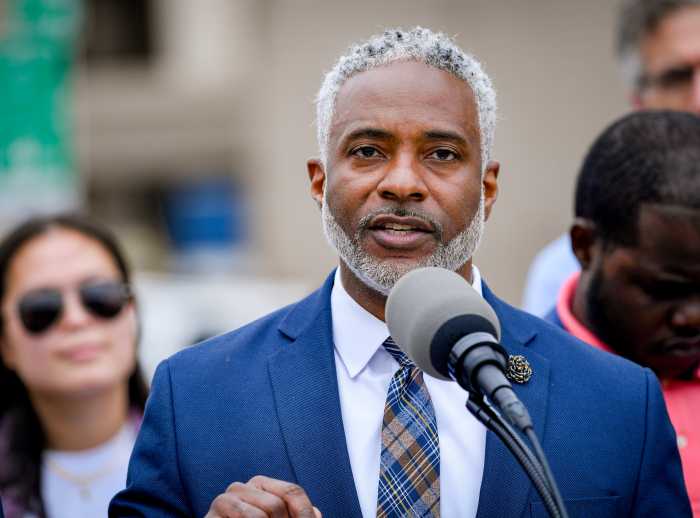I’ve been disengaged from the presidential election, which is unusual. I’ve loved politics since the 1996 Clinton-Dole race, which I followed religiously.
I used to want to BE president because of the power of politics to effect change. But this year, I can’t be bothered to even watch “The Daily Show” coverage. When it comes to the issues that matter most to me — the prison industrial complex, the overpolicing of black communities, services and shelters for homeless queer youth, and the increasing number of transgender women being killed — I haven’t heard any candidates offer solutions.
Don’t get me wrong, I’m as opposed to Donald Trump and Ted Cruz as any other black feminist. But it feels like Trump is the candidate the country deserves. It’s not surprising so many people feel emboldened by his hateful, xenophobic rhetoric. From Jim Crow laws and redlining to the Chinese Exclusion Act and Japanese internment, America’s story is a history of laws and policies that have repeatedly disenfranchised people of color. The arc of the moral universe may be bending toward justice, but it isn’t there yet.
When I hear people like Sen. Elizabeth Warren say things like, “America was built on values like decency, community and concern for our neighbors,” I roll my eyes so hard. America was founded on genocide and slavery, and we have never fully reckoned with that. The racism at Trump rallies is horrifying, but not surprising. I’m not going to move to Canada, no matter what happens in November. I’m not even going to joke about it. My parents came to the United States from the Caribbean in the ’70s for a better life. America is where my ailing grandmother lives, where my brother is buried, where my roots are. I’ve traveled and lived abroad (four continents!), and this is where I feel most at home. This is where I live, and I don’t plan on going anywhere.
So what to do after the election? Regardless of who wins, how do we, as a country, deal with the hate, anger and fear Trump has unleashed? Whoever wins in November will inherit a country deeply divided, not only by ideology and class, but also by race. To move forward, we need to address racism, the root of the sickness, not just its symptoms.
Maryse Pearce was raised in Queens, and is a student at Brandeis University.






































